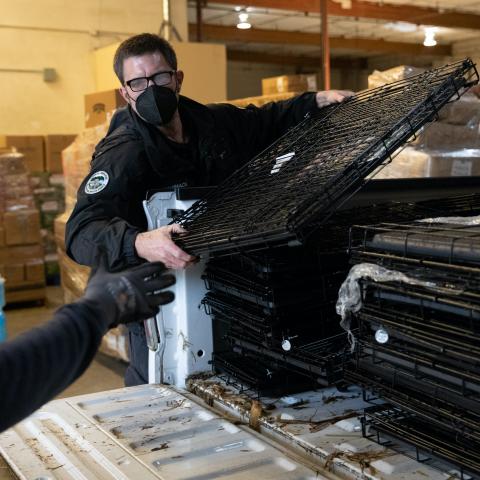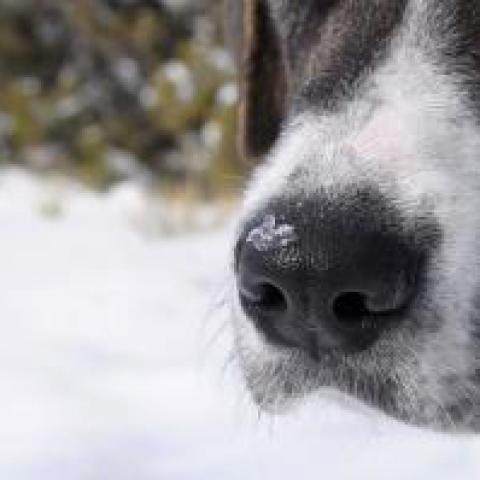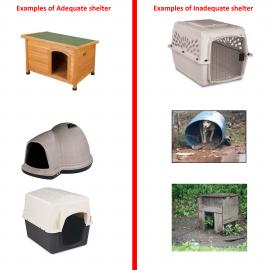Prepare Animals for Winter Weather
Ahead of the cold snap, prepare pets and livestock for cold weather.
As we reach the end of a challenging year — and potentially ring in the new one — with frigid temperatures, it’s important to remember that extreme temperatures can be harmful to both people and their pets. Just as heat can be dangerous for pets without proper care, cold weather can also lead to serious health risks, including frostbite and hypothermia.
According to the American Veterinary Association, “pets' cold tolerance can vary from pet to pet based on their coat, body fat stores, activity level, and health.” Pets with conditions such as arthritis or other health complications are more susceptible to a dip in temperatures. Now is a good time to prepare for cold weather and take precautions to keep your pets warm.
Pets are welcome at cold weather shelters, and Trimet will provide free transportation to shelter sites. Learn more below, or call 211.
Multnomah County Cold Weather Information & Shelter Status
Look out for your pets
The Humane Society of the United States (HSUS) and the American Society for the Prevention of Cruelty to Animals (ASPCA) ask owners to:
- Keep pets inside during cold weather.
- If you have outdoor cats, or if you help care for neighborhood cats, provide adequate shelter from cold weather. Ideas for temporary emergency shelters, and permanent winter shelters are available from Alley Cat Allies and Neighborhood Cats.
- Let longer-haired dogs keep their warm coats, and consider investing in a sweater or coat for short-haired breeds.
- Keep poisons, including antifreeze and rock salt (commonly used for melting ice), away from animals. Visit the ASPCA Animal Poison Control Center for more information.
- Wipe a dog’s paws to rid them of rock salt that may be spread on outdoor paths or roads.
- Before starting your vehicle, bang the car hood to warn small critters that may curl up on the engine to keep warm.
- Leash dogs during snow storms, when dogs may lose their scent and get lost. Make sure your pet’s identification and contact information is up-to-date. Check out Multnomah County Animal Services’ Lost and Found Pet Reports to reunite quickly with a missing pet.
Livestock need protection, too
- Provide appropriate shelter from the elements for horses and other livestock. While some livestock may be able to withstand colder temperatures, structured shelter out of the elements is critical to health and wellness. Dry bedding and proper ventilation offer protection.
- Take proactive steps to address health conditions. Like companion pets, livestock with health conditions are more vulnerable to inclement weather. This includes animals that may be pregnant. Check in with your veterinarian for animals that may need more attention during cold weather.
- Ensure access to water — specifically fresh, unfrozen water.
Multnomah County Animal Services also enforces adequate shelter laws. Adequate shelter defined under Oregon State Statute ORS 167.310 (b) (A-G) is a barn, doghouse or other enclosed structure sufficient to protect a domestic animal from wind, rain, snow or sun that has adequate bedding to protect against cold and dampness and maintained to protect the domestic animal from weather and physical injury. You can read and view examples of adequate and inadequate shelter here.
For more information about Multnomah County Animal Services call: (503) 988-7387

Motoya Nakamura

